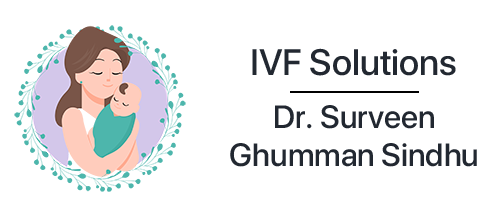The progress of science in the field of infertility has increased in leaps and bounds. Women reaching early menopause or those with less egg reserve can now have children through donor eggs. However it is important that a donor is taken only when indicated and for that it is important to know what are the indications. Some doctors suggest a donor when one IVF cycle fails without realizing that it may not be the fault of the egg! So when do you need an egg donor
Egg donation is required in older women where the egg reserve has decreased and quality of eggs are poor giving poor fertilization and pregnancy rates. These women may have one or two eggs but chance of success after 40 greatly decreases and is very poor after 45.
A donor may also be required in younger women who have lost their egg reserve prematurely due to other causes. This could occur in autoimmune disease, or may be due to a genetic cause. Sometimes chemotherapy or radiotherapy may cause this. Surgery on ovary like a cystectomy or ovarian drilling if not done carefully can destroy healthy ovarian tissue leading to loss of eggs.
Other causes for taking a donor are genetic disorders in female partner, Rh isoimmunization with Rh negative blood group and history of recurrent implantation failure or recurrent pregnancy loss. Persistent poor egg quality although number of eggs not compromised as often occurs in PCOS women may be another reason for donor egg cycle.
How do you diagnose a poor egg reserve?
There are 3 main test to depend on.
1. Anti Mullerian Hormone (AMH): This reflects the egg reserve. Any value less than 2 ng/ml reflects a low egg reserve. Less than 0.4 ng/ml is an extremely low reserve. Between 0.4-2 ng/ml the woman can try with her own eggs. The result would depend on the quality of her eggs. If quality is good even a small number of eggs can yield a pregnancy.
2. Follicle Stimulating Hormone (FSH): Another test for egg reserve is a FSH done on day 2 of the period. Any value more than 9 IU/ml shows a compromise in egg reserve. More than 12 is a severe compromise and more than 15 IU/ml one usually never gets a pregnancy.
3. Antral Follicle Count: The third test on which one should rely is an antral follicle count. This is done on day 2 of period and is an ultrasound of the ovaries where the number of early follicles are counted. These are the ones which will grow if stimulated for IVF. It is a fairly reliable test provided someone experienced does it. Anything less than 4-5 is severe compromise of egg reserve. 6-8 is moderate compromise.
Sometimes all the ovarian reserve tests are normal but there is an unexpected poor response. These women also maybe considered for egg donors as there could be a compromise at receptor level.
It is only those women with severe compromise and one failed IVF due to poor yield who should go in for an egg donor. Since none of the tests are fully accurate, it is important to undergo one cycle before you decide on an egg donor.
Options other than egg donor are embryo pooling where egg retrieval is done over 3-4 cycles and a pool of embryos is created so that the best can be selected giving a better chance. Adoption is another option. All these options must be considered before decision for egg donor is taken.



When the women cannot conceive with her eggs there is a chance to conceive with donor eggs. Many people don’t know about this process. This Blog is very useful for those who want to know about this. Keep posting blogs like this.